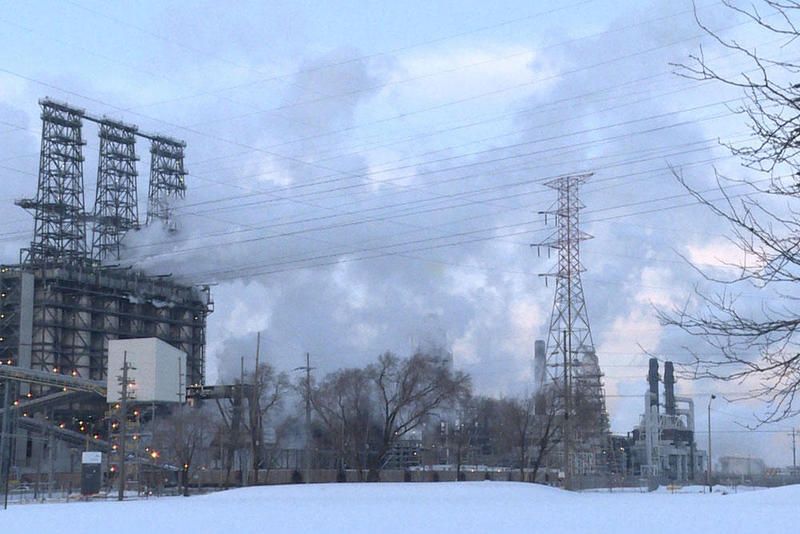
In a statement, the company cited economic uncertainty, the slow-developing hydrogen market and BP’s renewed focus on oil and gas, among its reasons for its halt on the carbon storage project. (FILE PHOTO: Tyler Lake/WTIU)
Oil company BP has put a project to store its carbon emissions underground in Indiana on hold. The company planned to pipe carbon dioxide from its Whiting Refinery and store it in rural areas to the south — in counties like Newton, Jasper, Pulaski, White and Benton.
It was part of BP’s effort to make “blue” hydrogen — which is made using energy from fossil fuels, but includes carbon storage. BP is one of several companies that committed to grow clean hydrogen in the region as part of the Midwest Alliance for Clean Hydrogen or MachH2. It's not clear what BP's decision to pause the project means for the hydrogen hub overall.
BP did seismic testing in Benton County to see if it would be a viable place for storage. But Benton County Commissioner John Gick said it's unlikely landowners would have allowed the company to store CO2 there — few residents were in favor of the project.
They expressed concerns about everything from earthquakes, to contaminating drinking water to hurting crops.
“Not knowing what that could or could not do to our ground should there be a leak — there’s just too many unknowns," Gick said.
A state law also made Indiana taxpayers liable for incidents that happen years after carbon storage facilities close.
Residents living along the path of the pipeline in northwest Indiana also had concerns about the project.
Lisa Vallee is with the group Just Transition Northwest Indiana and lives within a mile of the refinery. She said residents worried leaks in the pipeline could contaminate drinking water or cause an explosion.
Several environmental groups have come out against carbon capture and storage because it allows companies to continue to pollute rather than forcing them to reduce their emissions.
Still, Vallee said the fact that BP is reneging on some of its climate commitments and jobs for the community is disheartening. In February, the company cut $5 billion in funding for renewable projects.
“When it is no longer profitable, when they no longer are getting tax credits — for example, for wind and solar energy," Vallee said. "They are backing away from that."
Join the conversation and sign up for the Indiana Two-Way. Text "Indiana" to 765-275-1120. Your comments and questions in response to our weekly text help us find the answers you need on climate solutions and climate change at ipbs.org/climatequestions.
The Trump administration’s shift away from climate efforts is partly behind BP’s decision to pause the carbon storage project.
In a statement, the company cited economic uncertainty, the slow-developing hydrogen market and BP’s renewed focus on oil and gas, among other reasons.
“This decision relates solely to BP's involvement in the Midwest and not to any other low-carbon hydrogen project BP may develop elsewhere in the U.S. or globally,” BP said in a statement.
Last month, U.S. Sen. Jim Banks (R-Ind.) and U.S. Rep. Frank Mrvan (D-Highland) wrote a letter to the U.S. energy secretary in support of the hydrogen hub.
BP received a $98 million grant from the U.S. Department of Energy two years ago for carbon storage projects in Indiana, Illinois and Michigan. The company didn’t make anyone available for an interview.
Rebecca is our energy and environment reporter. Contact her at rthiele@iu.edu or on Signal at IPBenvironment.01. Follow her on Twitter at @beckythiele.











